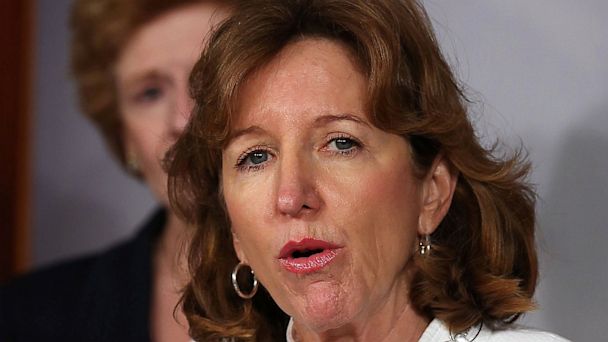GOP Group Targets Vulnerable Democrats On Student Loans

Credit: Mark Wilson/Getty Images
Crossroads GPS, a 501(c)(4) group linked with Karl Rove-affiliated Super PAC American Crossroads, has launched Facebook ads blaming four Democrats vulnerable in 2014 for student loan rates doubling this month.
The $50,000 worth of weeklong advertisements are targeting Sens. Mary Landrieu (D-La.), Kay Hagan (D.- N.C., above), Mark Pryor (D.-Ark.) and Sen. Mark Begich (D.-Alaska), all of whom represent typically red states noted for their vulnerability in 2014.
"These senators were more interested in playing politics instead of keeping the student loan interest rates low," said Jonathan Collegio, spokesman for Crossroads GPS. "We feel like we can motivate them."
Urging the targeted college students to call their senators, the ad says that the senators are "holding your future hostage" and putting "partisan posturing ahead of getting a broadly supported deal done."
Sadie Weiner, a spokeswoman for Hagan's office responded to the charge, writing in a statement, "It's clear that Crossroads is the one politicizing this issue."
She continued, "[Sen. Hagan's] North Carolina-first mentality on this issue and others was bound to attract the attention of special interest peddlers like Karl Rove, but she remains focused on finding a sustainable, long-term solution that doesn't make college a pipe dream for hardworking families."
The other three senators' offices attacked in the advertisements did not respond for comment to this article.
Unable to garner any GOP support, the Democrat-controlled Senate failed to pass a bill that would have prevented the student loan rates from doubling on July 1 from 3.4% to 6.8%. The GOP-controlled House, however, passed a bill that would have effectively reversed the doubling, Collegio said.
Reports came Monday claiming that a bipartisan group of Senators reached a tentative deal about the loans, but the deal hit a snag late Monday amid a Congressional Budget Office report stating the plan would cost $22 billion over the next decade. Negotiations are ongoing.
"You can't let the perfect be the enemy of the good," Collegio said. "There's a perfectly good alternative waiting that has passed the U.S. House, but the Senate has failed to act."